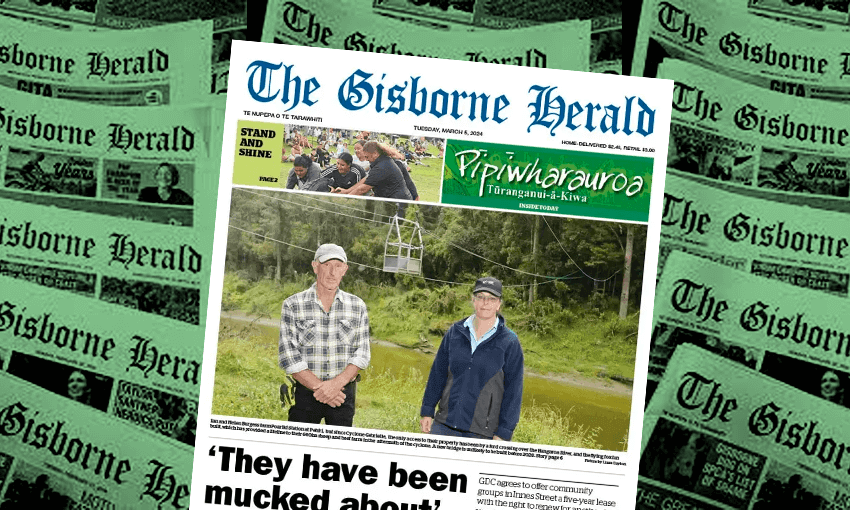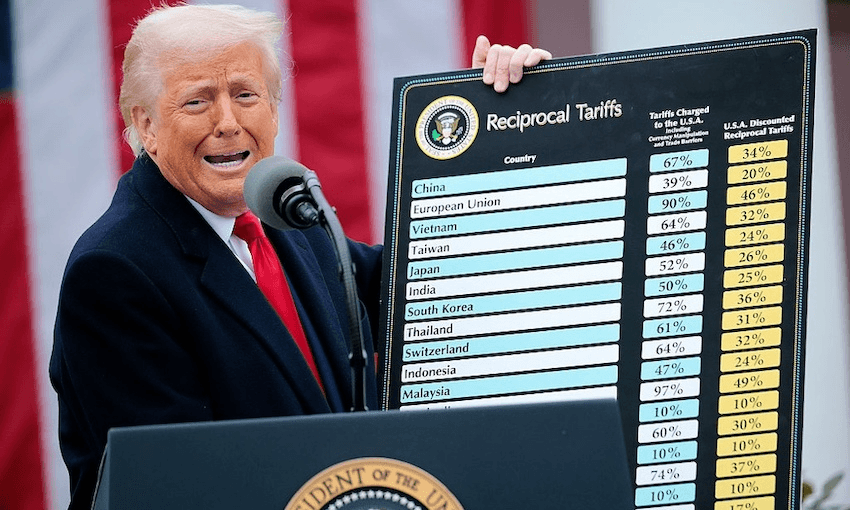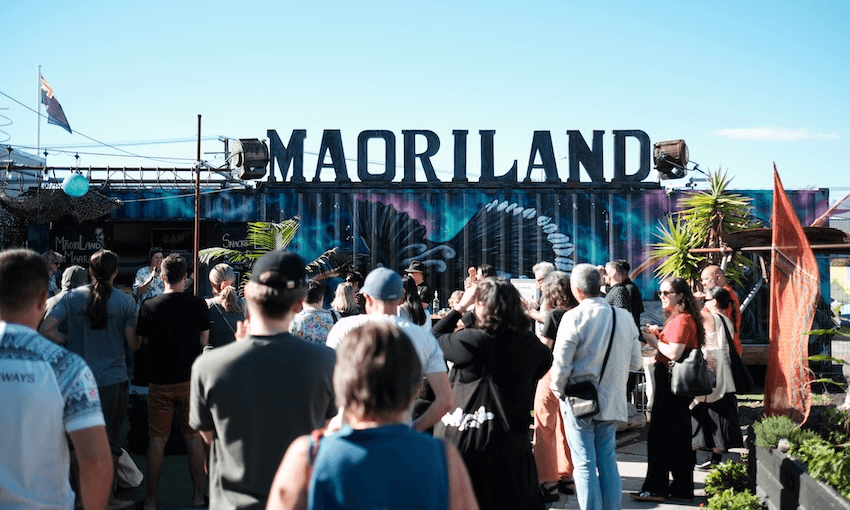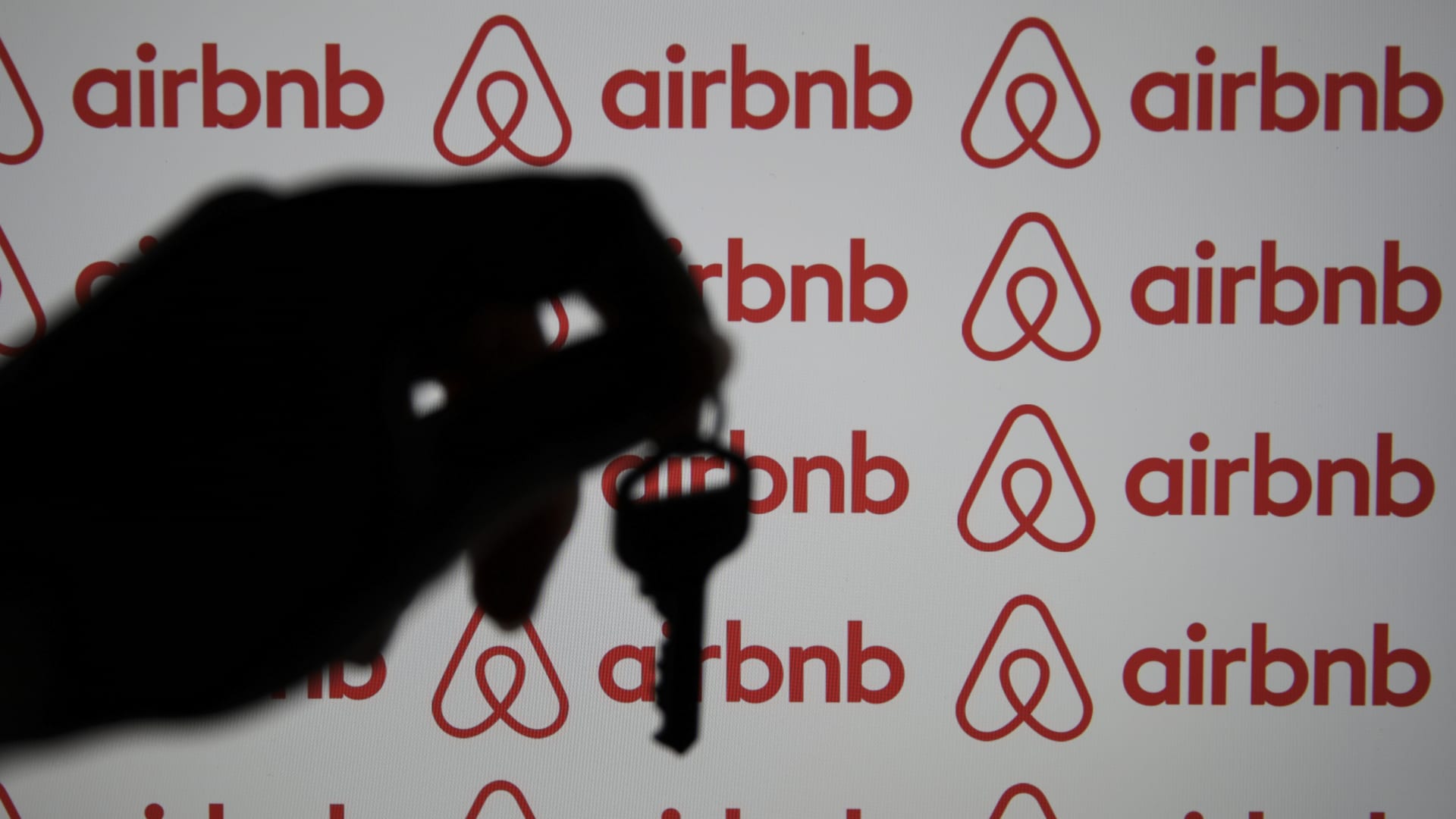The Gisborne Herald has been sold to NZME, it was announced today. Maia Ingoe, who first wrote for the paper aged 14, reflects on what the loss of independent journalism means in the current climate.
Blow after crushing blow has been dealt to media in the last month. But the Gisborne Herald being sold to NZME cuts particularly close to home for me.
I’ve felt pride in my hometown having a newspaper that is mostly independently owned (NZME has held a 49% share in the paper since 1987). As other local papers were bought up by the big media companies of NZME and Stuff, it felt like a point of difference, evidence of the strength of local storytelling by Gisborne journalists.
I have potent memories associated with the Gisborne Herald – round at my grandparents’ home in Makauri for a Sunday cup of tea, unfolding the paper’s Weekender edition. A middle section with slightly thicker paper, magazine style, led with a feature profile about one of Gisborne’s locals who had a unique story to tell. There were travel stories, written by locals on overseas trips, and guest columns changing every week – special crosswords and recipes too. I got my first whiff of journalism while riffling through those pages with ink-stained fingers.
My grandparents had the paper delivered every day, and we lived just up the road. I’d catch the bus to their house after school, picking up the paper from the gate on my way in, and would be the first to crack it open if Grandad wasn’t around. I learnt much about my home, the East Coast, from those pages.
We’ve all had a moment when the Gisborne Herald published our name in a story about a local event, or when a photo of us with face paint from our school athletics day made it into the page two spread. High school sports teams and local sporting legends were featured on the back page. I was a theatre kid, and before every community production’s opening night, the whole cast would eagerly await the newspaper’s review.
I started writing for the Herald at 14 years old. A weekly youth section published stories written by high school wannabe journalists. It was curated by my second cousin, a reporter there at the time. The youth pages were the first place I was published. My opening article was about factory farming, and I received a strongly worded letter to the editor from a company in response. From then on, I was hooked on the smell of a good story – especially one that ruffled a few feathers.
The Herald gave me my first taste for journalism – a career I’m now following, chasing down news in Auckland, and editing a student magazine in Wellington last year on the smell of an oily rag. I’ve been away from home for nearly five years, but whenever I get back, I open a copy of the Gisborne Herald and relish in the strong, local journalism that perseveres. A copy of the paper always made it up the coast with us, reading material while camping at the beach. During Cyclone Gabrielle, the Herald distributed copies of the paper for free, while the community was cut off from telecommunications. They still printed on-site then. From Wellington, I anxiously watched their website for updates. The Gisborne Herald is so much more than a source of local news – it’s part of the fabric of the community, creating a local record and filling the gaps for a place somewhat under-served by other news outlets, whose journalists are mostly based three hours away in Hawke’s Bay.
It was always expected that the Gisborne Herald would be eventually bought up by a bigger outlet, and today’s news follows NZME’s purchase of Bay of Plenty-based SunMedia, including its website SunLive and several newspapers.
But the fact it’s happened at a time when we are grappling with a crumbling fourth estate in Aotearoa feels like a blow close to home. It’s true that losing its independence after 150 years of ownership by the Muir family – the same one that owns the local bookstore down the street from the paper – doesn’t spell death for the paper. It could elevate local stories to a bigger audience, and help the paper survive into the future. It’s also not unexpected – in May last year, it shifted to a five-day-a-week publication, and began printing from NZME’s presses in Auckland. But other local papers have been lost once bought by bigger media – in 2018, Stuff culled 28 local papers, including the Kaikōura Star and the Ruapehu Press. News is shifting to digital, and local print newspapers all over the country are hanging on by their fingertips. It’s no surprise – after all, my grandparents were the ones to buy the paper, and neither of my parents had a subscription.
In a statement, NZME says it will be working through a transition period with the Gisborne Herald team, including making employment offers to “many” of the 54 staff employed at the paper. For now, local journalists with decades of experience and local knowledge wait to see what will become of their paper. It will continue – but there’s an element of independent local journalism that I fear will not be the same.




















Discussion about this post